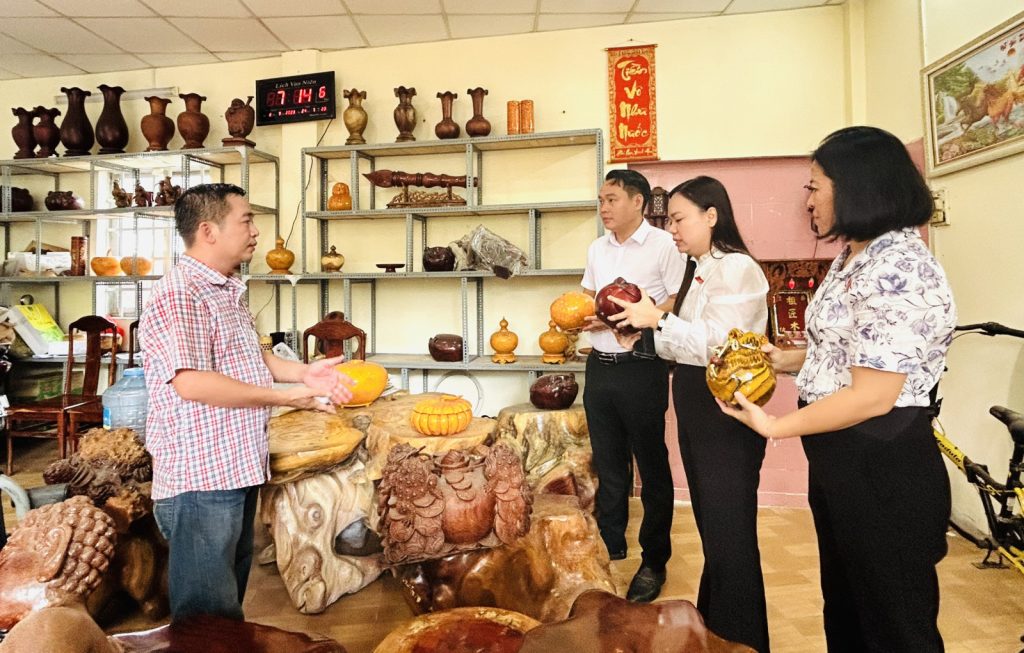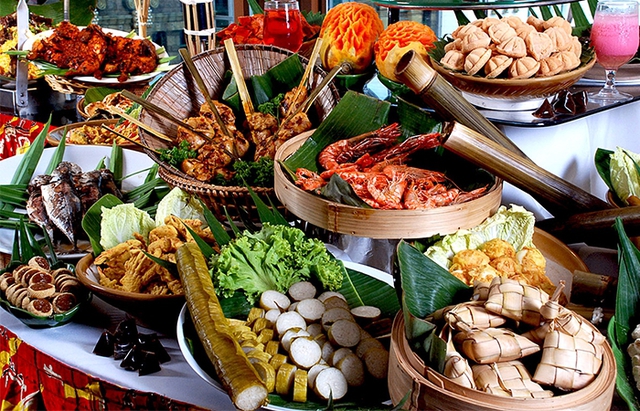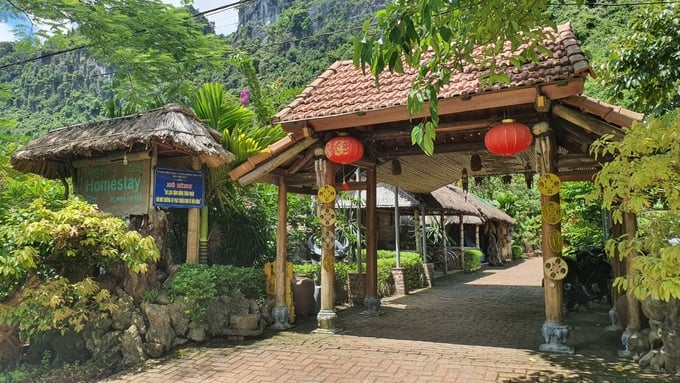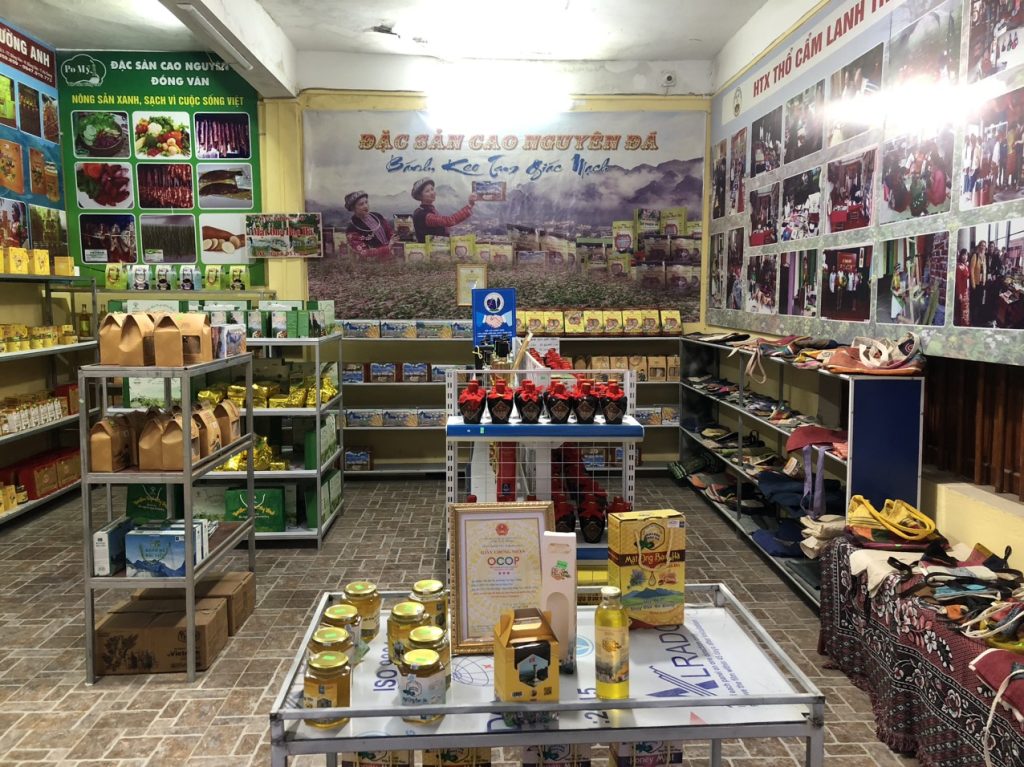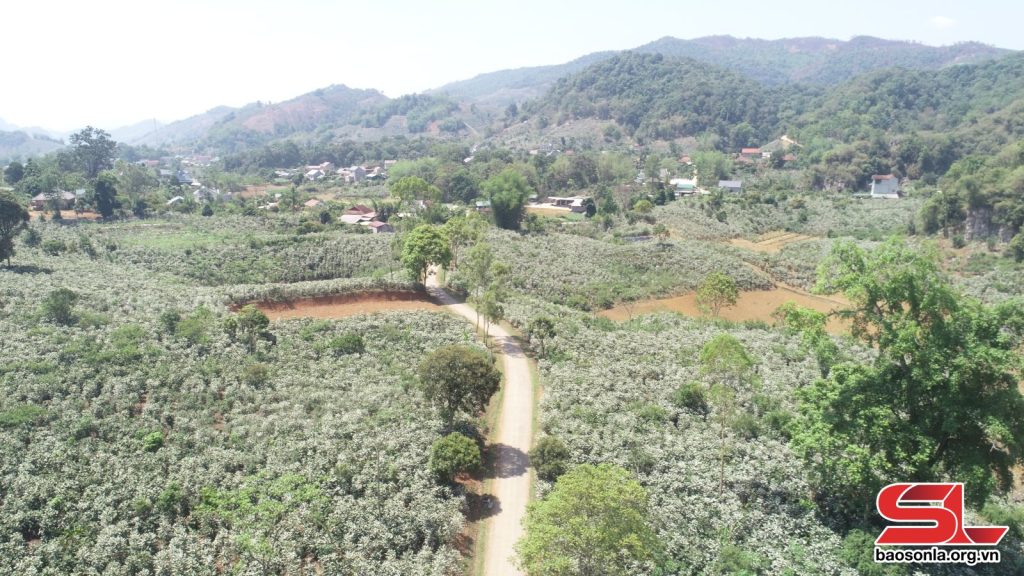There are still obstacles
One of Binh Duong’s traditional professions developing and creating value in the economy is pottery making. Currently, “Binh Duong Pottery” has been included in the list of national intangible cultural heritages by the Ministry of Culture, Sports and Tourism. Minh Long I high-class ceramics is one of famous pottery brands of Binh Duong as well as the whole country, favored by domestic and foreign consumers.
.jpg) A sculpture facility in Thu Dau Mot city’s Phu Tho ward is still attached to the traditional wood craft in this land
A sculpture facility in Thu Dau Mot city’s Phu Tho ward is still attached to the traditional wood craft in this land
In another corner of Binh Duong pottery, there was also a very famous profession of making piggy banks in Lai Thieu land of Thuan An city in the past. During the prosperous period, there were about 200 households specializing in making piggy banks here. Besides the competition from products with other materials, the nature of the work was heavy, but the income from it was not high. Many kilns had to move to other places to carry out environmental protection under the general policy…, so the number of households and workers attached to the piggy bank profession has also gradually decreased.
Currently, the number of households making piggy banks here is only about 10, mainly painting piggy banks bought from other places. Nguyen Thi Thu Thuy, who has been involved in the piggy bank painting profession for more than 30 years in Lai Thieu ward said: “The most difficult thing at her facility today is product consumption. The facility operates mainly during the Tet (Lunar New Year) festival when demand for piggy banks increases. In the remaining months, we only do piggy bank products in moderation. There are only few customers. Therefore, after completing products, we usually pack them up and put them in storage.”
Similarly, in Thu Dau Mot city’s Tuong Binh Hiep ward, there were also many kilns specializing in producing jars, vessels,… in the traditional handmade method. Currently, only Dai Hung kiln is still in operation here. This is a provincial-level relic, so it is carefully preserved for protection. With traditional manual production methods, Dai Hung kiln has been one of the province’s tourist attractions. However, the difficulty in serving tourists at this relic is that there are no resting places, no other supporting services such as selling souvenirs, eating and drinking… Other historical-cultural relic sites are also facing such difficulties in the process of tourism development.
One of the most “desolate” traditional professions today is probably the wood craft (carving, sculpture) in Thu Dau Mot city. Many years ago, when the wood industry was still developing, carpentry establishments here were very busy. Just setting foot in the area at the beginning of Phu Van market in Phu Tho ward is enough to hear the sound of chiseling wood throughout the village. Recently, that noise has become less frequent, meaning that this traditional profession is no longer pursued by many people.
Concern about traditional occupations
Products made from crafts and craft villages in Binh Duong contain traditional marks and sophistication of artisans. Therefore, preserving the cultural value of traditional occupations associated with tourism development will positively contribute to preserving and upholding the traditional cultural identities of the nation. In addition to cultural and historical values associated with this land, traditional crafts are identified as one of the resources with unique values to form up the local tourism products.
The work of preserving and upholding the cultural values of traditional craft villages associated with tourism development is a common concern of the province. Many research projects have been carried out by experts in and out of the province. Over the past time, the province has issued a number of documents related to the preservation and development of traditional crafts and craft villages. The most notable thing is the Project “Preserving and developing the traditional craft village of Tuong Binh Hiep lacquer village combined with tourism in Thu Dau Mot city”. However, due to many reasons, this project’s implementation was still slow compared to progress.
According to Dr. Huynh Ngoc Dang, Chairman of provincial Historical Science Association, in the current urbanization situation, it is difficult for the province to recognize more traditional craft villages. The province has only one traditional craft village, which is Tuong lacquer village. Crafts or traditional occupations are part of the livelihood of people attached to these professions. Therefore, when carrying out the work of preserving traditional crafts, we must always deliberate and should not do it at all costs. Along with the two traditional professions that have been recognized as national intangible cultural heritages, he also suggested considering Binh Duong’s wood craft to prepare a document for recognition in the near future because this is also a long-standing traditional craft in Binh Duong.
According to provincial tourism development orientation until 2025, one of the province’s typical tourism products is to visit traditional handicraft villages. However, up to now, the tourism product to visit traditional craft villages has been still fragmentary and has not really become a complete service product to be put into operation to serve tourists and generate revenue for the local tourism industry, contributing to improving economic conditions for the local traditional craft production establishments.
Reported by Hong Thuan-Translated by Kim Tin
Binh Duong News – https://baobinhduong.vn/en

